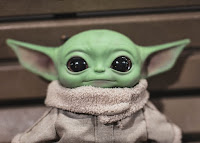Can a movie, or a TV series, be shocking and hilarious at the same time? For me Yes but does that make me weird?
On that point, I'll be blogging about Squid Game in a few days.
Meanwhile I've watched a couple of feature length Netflix sports-related documentaries in a series called Untold. Last night was Untold: Crime & Penalties and tells the story of the Danbury Trashers ice hockey team. The previous episode Breaking Point I watched was about the tennis rivalry and friendship between Mardy Fish and Andy Roddick and, ultimately, Fish's anxiety and mental health problems. There's an episode about Caitlyn Jenner who, as Bruce Jenner, won Olympic gold for the decathlon, one about an 'infamous' (I'd never heard of it, so relatively infamous) NBA brawl, another about female boxer Christy Martin.
In each case the central structure features a defining moment, which we see at the beginning, an examination of why this happened and finally an assessment of the outcomes.
The Danbury Trashers came about as a result of mob boss (if he was one of the ubiquitous Dragons' Den dragons, he'd be "trash disposal mogul") Jimmy Galante, who bought his 17 year old son A.J. a UHL [United Hockey League, a minor league one level below the NHL] ice hockey franchise, making A.J. President with carte blanche to hire whomever he wanted to play in the team. What could possibly go wrong? In true Dirty Dozen style, he recruits a bunch of the best and the worst - the best players with the worst (most violent) temperaments, setting them the goal of terrifying their opponents into submission. I am not really familiar with ice hockey but it has always seemed to me a sport flirting on the edge of violence, so none of this is surprising. The central moment occurs when one of the team's players has his leg broken by an opponent - and you can easily imagine what follows.
There's a subplot with the FBI investigating, and eventually indicting, Jimmy. He is acclaimed as a hero for creating this sporting monster, with the Danbury locals fully in tune with the macho approach of the team. The players give extended interviews and the director makes a good stab at humanising them. To the extent that there are definitely hilarious moments to go alongside the gut-wrenching barbarity of it all, yes, my central premise is proven.
Breaking Point is set around Mardy Fish's sudden withdrawal before a match against Roger Federer, using this to probe his life of intense pressure to succeed from a very young age, a breakdown, recovery and his final decision to retire as a player and subsequently, amongst other things, his being open about his well-being issues and his campaign for awareness of mental health issues for sports stars. An extended interview with Fish himself frames the documentary and, as with Crime & Penalties, there are interviews with key people - particularly Andy Roddick in this case. It's neither shocking nor hilarious but a worthwhile and sensitive examination of a familiar sporting issue. I'm looking forward to seeing the remaining three in the series.







